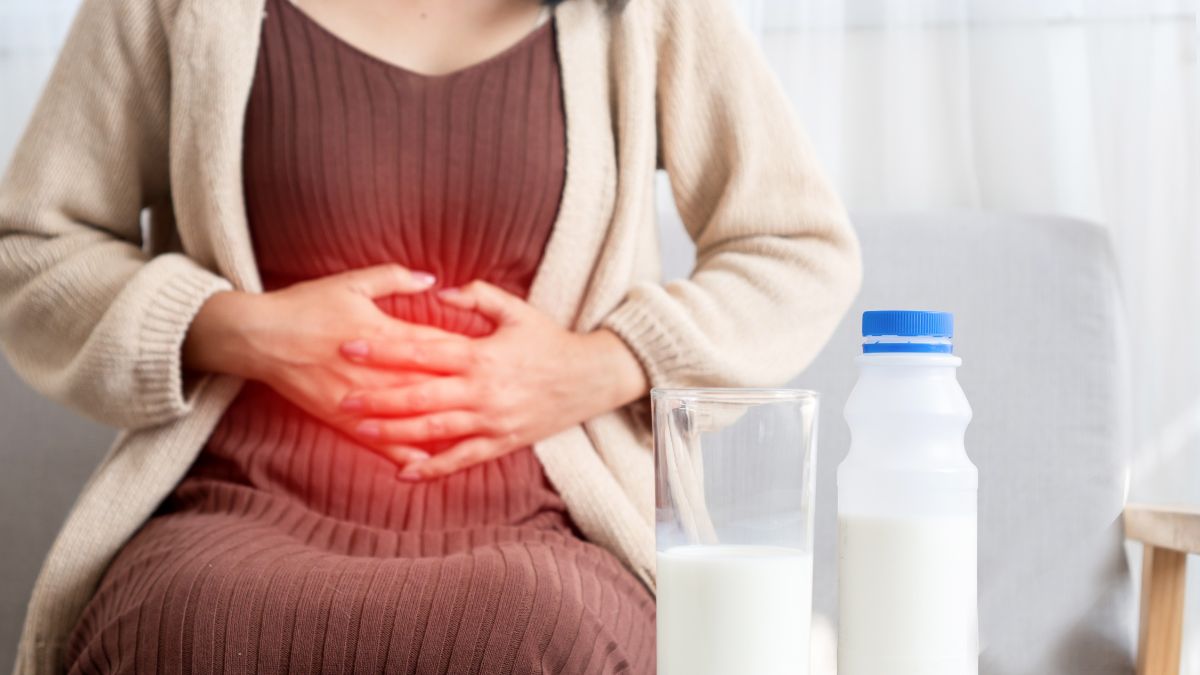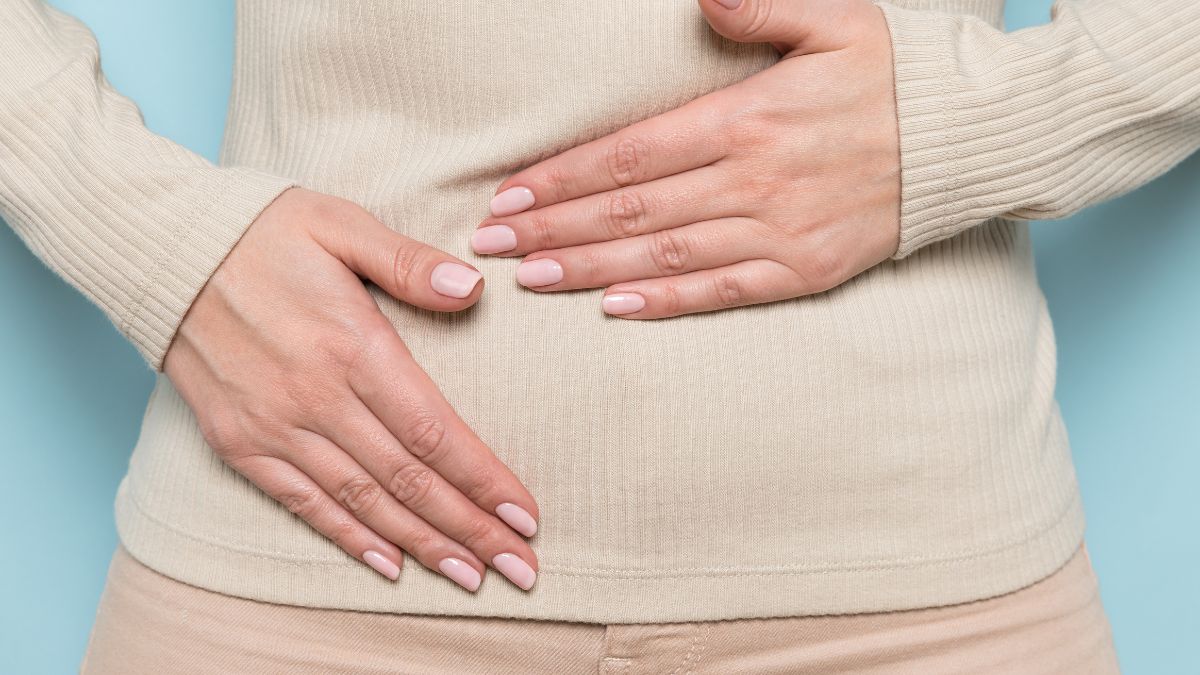- By Priyanka Munshi
- Fri, 05 Jan 2024 05:55 PM (IST)
- Source:JND
Do you know that bloating is a common issue that can impact people of different ages? Particularly, women who are 35 years of age or older seem to encounter it more frequently. Hormonal fluctuations, a sluggish metabolism, and lifestyle choices are some of the causes that contribute to this syndrome. Hormonal changes, especially during the menstrual cycle, can cause water retention and discomfort in the abdomen when women enter their mid-30s.
Bloating can also result from dietary choices, stress, and a decrease in physical activity. Bloating in women around the age of 35 can be reduced by following a balanced diet, drinking plenty of water, controlling stress, and engaging in regular exercise. These actions also assist in improving overall digestive health and wellbeing.

Why Does Bloating Happen Majorly To Women Who Are Above 35? (Image Credit: Canva)
Dr. Roli Banthia, who is a consultant in obstetrics and gynecology at Yathath Hospitals, exclusively told Jagran English about Why Does Bloating Happen Majorly to Women Who Are Above 35 and What Are The Reasons?
Also Read: Why Insomnia Happens And What Are The Ways To Deal With It? Know What Doctor Has To Say
According to Dr. Roli, "bloating, a common gastrointestinal symptom, tends to affect women above the age of 35 more frequently due to a combination of physiological and hormonal changes that occur during this life stage. One significant factor contributing to bloating in women over 35 is hormonal fluctuations associated with perimenopause and menopause."

Why Does Bloating Happen Majorly To Women Who Are Above 35? (Image Credit: Canva)
In addition, she said, "As women approach and enter menopause, the ovaries produce lower levels of estrogen and progesterone. These hormonal changes can disrupt the delicate balance of gut bacteria and impact the regulation of fluids in the body, leading to increased water retention and bloating. Furthermore, the decline in estrogen levels during menopause may influence gastrointestinal motility. Estrogen plays a role in maintaining the elasticity and tone of the digestive tract muscles."
At last, Dr. Roli said, "Reduced estrogen levels can contribute to a sluggish digestive system, causing food to move more slowly through the intestines and leading to a sensation of fullness and bloating. In addition to hormonal factors, lifestyle and dietary habits can also contribute to bloating in women over 35. This age group may be more susceptible to stressors such as work, family, and societal expectations, which can influence dietary choices and eating patterns. Consuming a diet high in sodium, processed foods, and carbonated beverages can exacerbate bloating by causing water retention and gas accumulation in the digestive tract."

